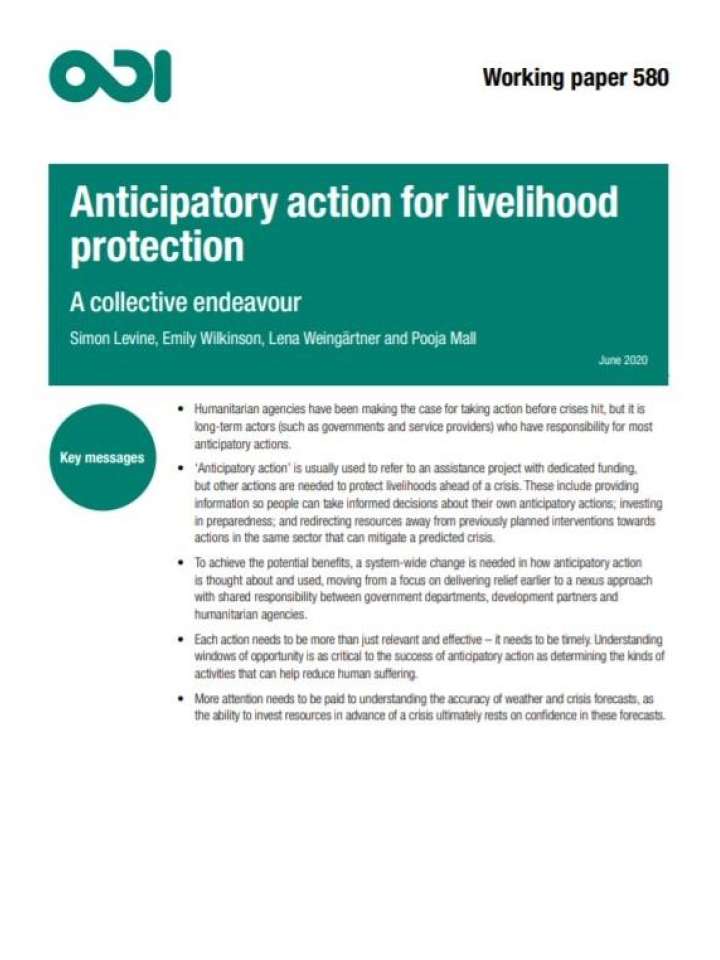Anticipatory action for livelihood protection: A collective endeavour
The term ‘anticipatory action’ refers to actions triggered before a crisis in order to mitigate the worst effects, or even avoid a crisis altogether. Decisions on how to protect livelihoods continue to be taken when a crisis is already happening and delays in mobilising funds to respond are commonplace. This working paper argues that the potential benefits of anticipatory action can only be achieved if the central focus moves from identifying and supporting vulnerable individuals with particular project packages to effecting a system-wide change in how anticipatory action is thought about and used.
Key messages:
- Humanitarian agencies make the case for taking early action, but it is long-term actors (such as governments and service providers) who have responsibility for most of these actions.
- Although anticipatory action usually describes an assistance project with dedicated funding, other actions are needed to protect livelihoods ahead of a crisis. These include providing information so people can take informed decisions about their own anticipatory actions; investing in preparedness; and redirecting resources from planned interventions towards actions in the same sector that can mitigate a predicted crisis.
- Each action needs to be timely. Understanding windows of opportunity is as critical to the success of anticipatory action as determining the kinds of activity that can help reduce human suffering.
- More attention needs to be paid to understanding the accuracy of weather and crisis forecasts, as the ability to invest resources in advance of a crisis ultimately rests on confidence in these forecasts.
Explore further
